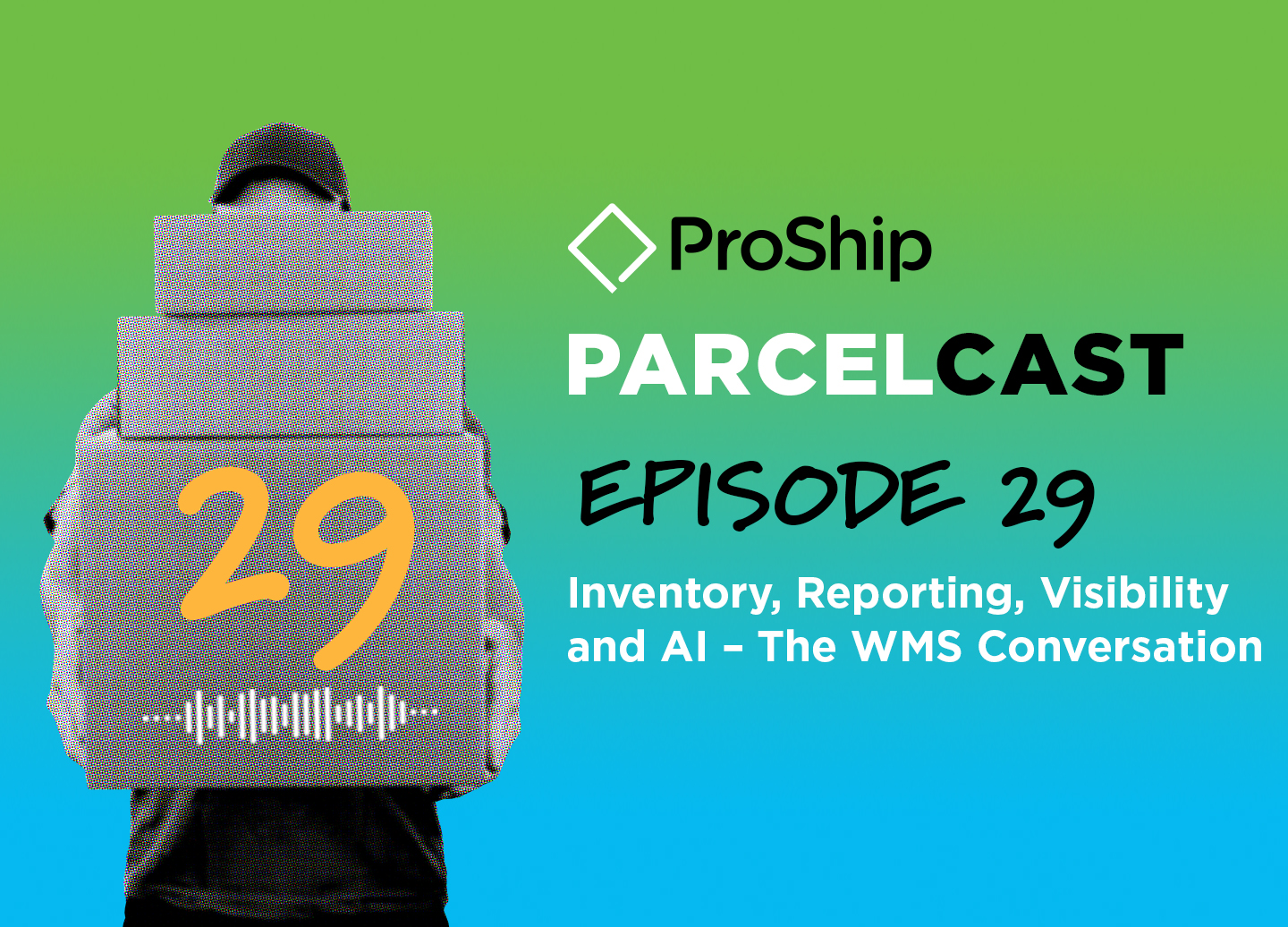Discover how WMS + MCSS can streamline operations, reduce costs and improve the CX
The modern warehouse is a beehive of activity, a dynamic environment constantly humming with movement. Gone are the days of static, siloed operations. Today’s warehouses play a critical role in fulfilling customer expectations for fast, reliable deliveries.
This landscape presents a unique set of challenges for warehouse managers. They’re constantly juggling demands to:
- Meet rising customer expectations for faster deliveries: Customers want their orders quickly, often within a day or two of placing an order (Thanks Amazon Prime!). This puts immense pressure on warehouses to fulfill orders quickly and efficiently.
- Manage complex inventory across multiple channels: Omnichannel is no longer just a buzzword – it’s a requirement for modern shippers. They sell and fulfill orders through various channels, from websites to online marketplaces and brick-and-mortar stores. Each channel has its own fulfillment requirements, making inventory management complex.
- Optimize warehouse space and resources: Warehouse space often comes at a premium. Managers need to maximize warehouse space and ensure efficient picking and packing processes to keep operations flowing smoothly.
- Maintain cost control: In a competitive environment, keeping costs under control is essential to maintain a profit. This involves minimizing labor costs, optimizing shipping costs, and reducing errors that lead to wasted resources.
Why Manual Processes Can’t Keep Up
Many warehouses still rely on manual processes to manage order fulfillment and shipping. While this approach might have worked in the past, it simply can’t keep pace with the demands of today’s e-commerce landscape.
Here’s why manual processes struggle to meet the needs of modern warehouses:
- Prone to errors: Manual data entry for tasks like order picking, packing, and carrier selection is error prone. These errors can lead to delays, order issues, and incorrect shipments, ultimately impacting customer satisfaction and increasing costs.
- Limited visibility: Manual processes lack the ability to provide real-time visibility into inventory levels, order status, and shipment tracking. This makes it difficult for warehouse managers to make informed decisions and proactively address potential issues.
- Labor intensive: Manual picking, packing, and shipping processes require a significant amount of human labor, increasing operational costs.
- Scalability challenges: As businesses grow and order volume increases (think peak season!), manual processes become increasingly difficult to scale. This can lead to bottlenecks, impeding growth potential.
The Power of Warehouse Management Systems (WMS)
In today’s competitive environment, warehouse efficiency is no longer a luxury; it’s a necessity. This is where Warehouse Management Systems (WMS) come into play.
What is a WMS?
A warehouse management system (WMS) is a comprehensive software solution designed to streamline and optimize warehouse operations. This software coordinates and manages the flow of goods within your warehouse.
Key Functionalities and Benefits of a WMS
- Inventory Management: WMS systems track inventory levels in real-time, providing accurate data on product availability, location within the warehouse, and historical sales trends. This helps you avoid out of stock items, make better purchasing decisions, and ensure you have the right products in stock to fulfill orders quickly.
- Order Picking and Packing: WMS optimizes picking routes based on product location and order details. This minimizes the time needed for pickers, reduces the risk of picking errors, and ensures accurate order fulfillment.
- Warehouse Layout Optimization: WMS software can analyze your warehouse layout and suggest improvements for product flow and storage. This can involve optimizing pick locations, zoning high-demand products strategically, and ensuring clear pathways for pickers.
- Labor Management: WMS can help you schedule labor resources efficiently, track employee productivity, and identify areas for improvement.
- Reporting and Analytics: WMS provides valuable reports and data insights, such as inventory turnover, picking accuracy, and fulfillment times. This data allows you to identify areas for improvement and make data-driven decisions to optimize your warehouse efficiency.
Warehouse management systems are powerful tools that can transform your warehouse operations. By implementing a WMS, you can achieve significant improvements in efficiency, accuracy, and visibility. This translates to reduced costs, improved customer satisfaction, and a competitive advantage in today’s fast-paced e-commerce environment.
The Power of Multi-Carrier Shipping Software (MCSS)
While WMS excels at managing internal warehouse operations, it doesn’t handle the complexities of multi-carrier shipping. This is where multi-carrier shipping software (MCSS) steps in.
What is Multi-Carrier Shipping Software (MCSS)?
Multi-carrier shipping software (MCSS) is the central hub for all your shipment execution needs, with functionality that helps execute shipments faster and at the lowest cost.
Key Functionalities and Benefits of a MCSS
- Cost-effective shipping: MCSS integrates with various carriers, allowing real-time rate comparisons based on factors like package size, destination, desired delivery speed and more. Shippers can select the most economical carrier for each shipment, leading to significant cost savings on overall shipping expenses.
- Streamlined shipping processes: Multi-carrier shipping solutions automate tasks like label generation and printing, reducing manual data entry and ensuring accuracy. Automation saves time, reduces errors, and allows you to monitor progress and proactively address any potential delays. Shippers can easily generate labels directly from the platform and even streamline the returns process. Streamlined returns further enhance the customer experience (CX).
- Enhanced control and visibility: MCSS provides valuable data and insights, such as real-time information on shipping costs, carrier performance, and delivery times. Analyzing this data helps shippers make better decisions for carrier selection, negotiate better rates, and optimize their shipping strategy.
By implementing MCSS, you gain benefits that go beyond just reduced costs, you gain improved accuracy, efficiency, visibility, and ultimately, a competitive edge in today’s e-commerce landscape.
How MCSS and WMS Integration Transforms the Warehouse
The true magic happens when you integrate MCSS with your existing WMS. This powerful combination unlocks optimization in three key areas – order fulfillment, efficiency and integration.
A Streamlined Order Fulfillment Process
Manual processes will no longer slow down your fulfillment operations. Here’s how MCSS and WMS work together seamlessly:
- Instant order recognition: The WMS recognizes a new order and retrieves product information.
- Seamless data flow: This product information is automatically transferred to MCSS.
- Real-Time rate comparison: MCSS utilizes data from the WMS on factors like package size and destination. It then retrieves and compares real-time shipping rates from various carriers to find the most cost-effective option.
- Automated carrier selection: MCSS automatically selects the most economical carrier and service level for that specific order based on a variety of data sets and pre-defined business rules.
- Efficient picking and packing: The WMS directs pickers to the correct location within the warehouse to retrieve the ordered items.
- Accurate labeling: With accurate weight and dimension data from the WMS, the MCSS generates precise packing slips and shipping labels, eliminating manual data entry errors.
- Enhanced visibility: Throughout this process, you have complete visibility within the WMS. You can see inventory levels, order status, and real-time shipment tracking information.
Maximum Efficiency
Integrating WMS and MCSS offers a multitude of benefits that optimize your warehouse:
- Streamlined order fulfillment: Automation significantly reduces manual work, minimizing errors and freeing up staff time for other tasks.
- Reduced shipping costs: MCSS automatically selects the most cost-effective carrier, leading to significant cost savings on your overall transportation spend.
- Improved order accuracy: Automation minimizes errors associated with carrier selection, packing slips, and shipping labels, ensuring accurate and timely deliveries.
- Enhanced inventory management: Real-time data from WMS on inventory levels and outgoing shipments allows for better inventory management and forecasting, helping you avoid stockouts and optimize purchasing decisions.
Leveraging Integrations for a Streamlined Supply Chain
For businesses with complex needs, additional functionalities are available to streamline your entire supply chain:
- Omnichannel fulfillment support: If you sell and fulfill orders across multiple channels, integration ensures seamless order fulfillment regardless of the order origin and fulfillment location. WMS and MCSS work together to identify the optimal fulfillment location and carrier based on inventory availability and customer location.
- Enhanced Supply Chain Visibility: Integrate shipping software with your existing Enterprise Resource Planning (ERP) system to gain a holistic view of your entire supply chain, from procurement to fulfillment. This improved visibility allows for better planning, forecasting, and overall efficiency.
- Boost Fulfillment Efficiency: An Order Management System (OMS) can receive orders from various sales channels, manage inventory across multiple locations, and route orders to the WMS for efficient picking and packing. The WMS then leverages MCSS to select the most cost-effective carrier and generate shipping labels. This seamless flow of information ensures all systems are working together in real-time to optimize fulfillment.
ProShip Multi-Carrier Shipping Software: Streamline Your Warehouse and Gain a Competitive Edge
Tired of managing multiple carriers and missing out on cost savings? ProShip’s multi-carrier shipping software can revolutionize your warehouse shipping operations.
Here’s how ProShip empowers you:
- Unmatched carrier network & real-time rate shopping: Secure the lowest cost option from a vast network of carriers, maximizing cost savings.
- Exceptional speed & reliability: Platform carrier engines ensure lightning-fast and reliable shipping transactions.
- Effortless automation: Streamline workflows with automated label generation and seamless integration with leading WMS & OMS for a smoother fulfillment process.
- Flexible & customizable: Tailor ProShip to your specific needs and business rules for maximum efficiency.
- Deploy Anywhere: Choose the deployment option that best suits your needs. ProShip offers on-premise deployment for full control, private cloud hosting for scalability, or a hybrid approach for a customized solution.
- Zero Downtime for Updates: Enjoy automatic updates and zero forced upgrades with ProShip’s Continuous Improvement/Continuous Deployment (CI/CD) versionless architecture. This ensures you always have the latest features without disrupting your workflow.
Don’t settle for average shipping. ProShip is your competitive edge providing a robust, reliable solution as the last shipping software you’ll ever need. Contact us today for no-pressure discovery call and see how ProShip can transform your warehouse.

 Back to Blog
Back to Blog






